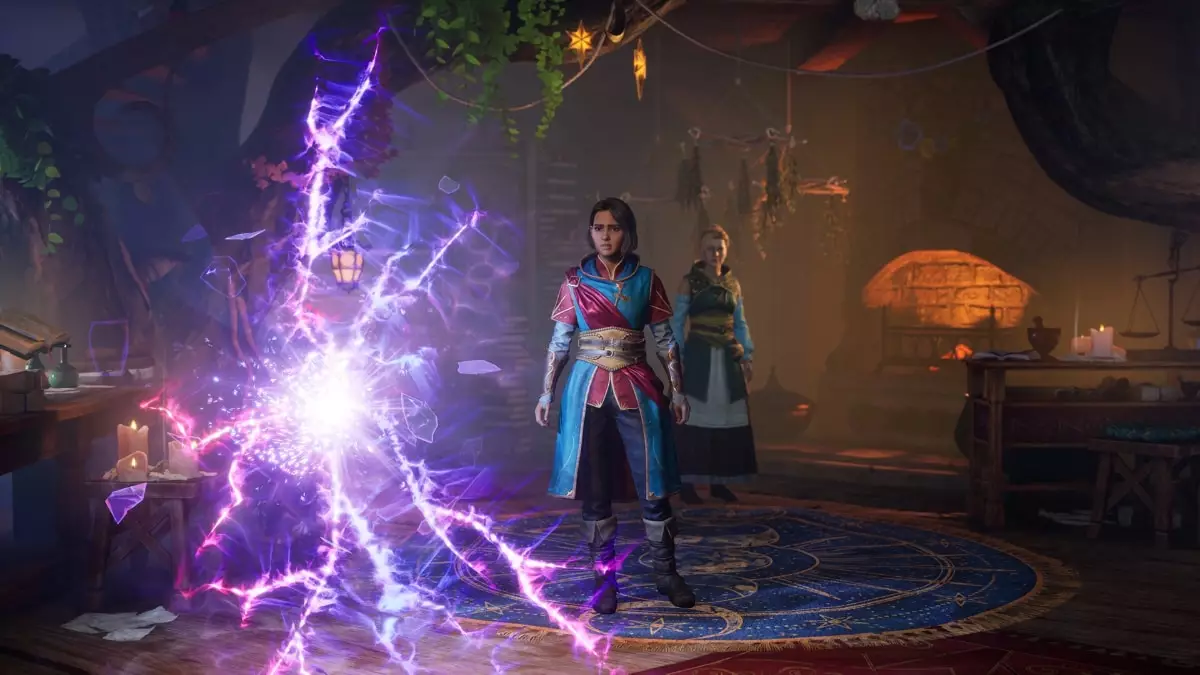The gaming community buzzes with excitement whenever a new console enters the arena. The recent announcement surrounding the Nintendo Switch 2 and its launch title, Split Fiction, has brought with it a dual-edged sword: the promise of innovation through the GameShare feature. However, as we delve into the implications of this functionality, it becomes evident that what should have been a game-changer instead opens a Pandora’s box of confusion and inconsistency that reflects poorly on Nintendo’s approach to inclusivity in gaming.
GameShare: A Mixed Bag of Potential
With GameShare allowing owners of the Nintendo Switch 2 to share their game with another player using the original Switch, one would assume that this feature serves the cooperative spirit that gaming strives for. Yet, the reality is far more nuanced. While Electronic Arts (EA) attempts to paint a picture of camaraderie between gamers by enabling two players to dive into Hazelight Studios’ acclaimed title, the fine print reveals that only compatible games can thrive within this new ecosystem.
Kudos to EA for thinking outside the box—inviting not just Switch 2 owners, but also original Switch users to join the fray seems like an appealing proposition. However, the backlash doesn’t take long to materialize. Nintendo’s own documentation states that only games that are native or compatible with the Switch 2 can be utilized in this way. Thus, for a title like Split Fiction, which is explicitly not launching on the original Switch, the situation becomes frustratingly convoluted.
The Duality of Cross-Play and Friend’s Pass
One of the most intriguing elements of Split Fiction is the inclusion of features like Cross Play and Friend’s Pass. This idea embraces the interconnected nature of modern gaming where players can unite, regardless of the platform they choose. Cross Play is a forward-thinking move that allows for a more inclusive gaming experience across consoles and PCs—a feat that reflects the new age of digital interactions.
Yet, there’s a glaring disparity that must be addressed. While EA champions the virtue of allowing gamers from different consoles to enjoy a seamless gaming experience, those who have yet to invest in a Switch 2 might feel alienated. The promotional enthusiasm surrounding these features contrasts sharply with the underlying limitations imposed by the current console divide. If we cherish inclusivity in gaming, why penalize those who are not among the first to adopt a new console?
Nintendo’s Obscurity: A Missed Opportunity for Player Integration
Nintendo has a storied history of innovation, but with the rollout of Switch 2, there appears to be a disconnect between their promising features and execution. Releasing a feature like GameShare, only to confine it within the bounds of compatible titles raises questions about their commitment to bridging the gaps among their user base.
With a rich library of games accessible on the original Switch, one would anticipate that Nintendo would leverage this opportunity to craft a more cohesive gaming experience. Instead, they seem to have erected barriers that are at odds with their ideals of belonging and community. In an era where cross-platform integration is celebrated, why would one of gaming’s most recognizable brands shy away from letting existing players join in on the excitement?
Pricing Strategy and the Path Forward
As the $49.99 price tag for Split Fiction is unveiled alongside its April 24 pre-order announcement, one can’t help but question whether the investment is worth it. Considering the hurdles players face when exploring features like GameShare—plus the knowledge that the title will inherently be limited to a specific console audience—isn’t it reasonable for consumers to reconsider their priorities?
This anticipated launch raises important discussions about how game pricing intersects with consumer expectations. Nintendo’s attempt to revitalize their console may backfire if they fail to listen to the collective voice of their community. As the gaming world contemplates the future, it becomes essential for console developers and publishers alike to tread the path of enhanced accessibility, rather than walk a tightrope of exclusivity.
The road to gaming innovation is fraught with challenges, and the conversation surrounding Nintendo Switch 2 and Split Fiction highlights the need for game studios and developers to prioritize inclusivity above all else. Only through collaboration can we cultivate a truly universal gaming environment.


Leave a Reply